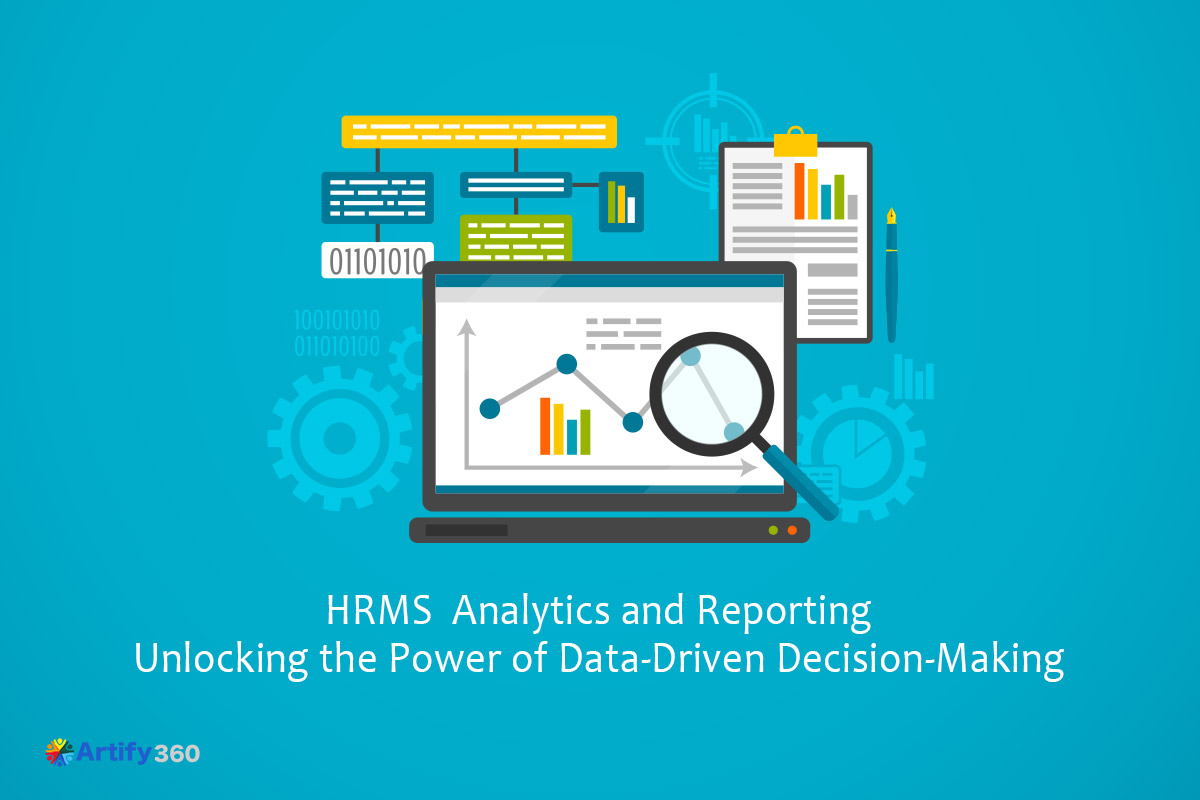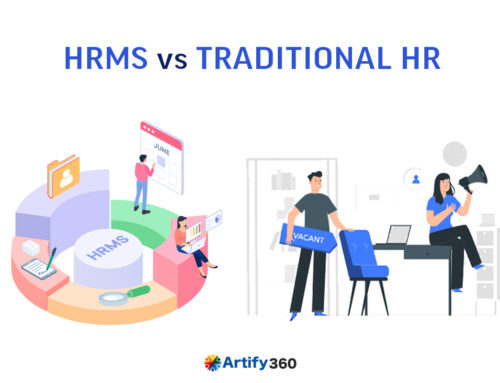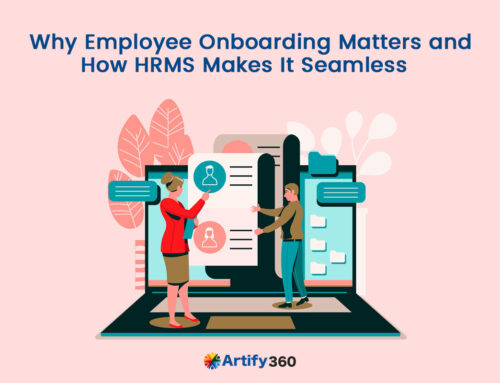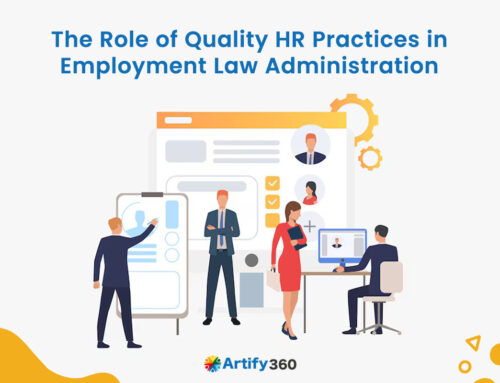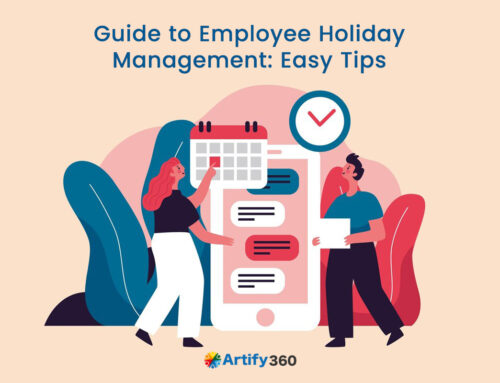How often do you find yourself needing efficient data management companies? When a data-driven HR management system is in place, it will help you generate quality operations value for your organization. Critical thinking and core decision-making will become easier in such cases.
This post covers the features of HRMS analytics and reporting to boost data-driven decision-making in organizations. It will help you stay on top of all your HRMS data analysis functions.
The World of HRMS Analytics
HR professionals need to make informed decisions in a business management model. You should consistently formulate an HR strategy to improve the productivity of your business. HRMS analytics helps you with this process.
What is HRMS analytics? Also known as HR analytics, it helps you grow in the comprehensive operations domain. There is no one-size-fits-all approach to building an effective HR analytics model. It depends on your organization’s performance and its standing in the business efficiency. The significant point is that efficient HR software analytics will open the route for boosting specific business unit segments.
The technical role of HR analytics primarily focuses on improving the various operations functions of the organization. However, you have to look at the bigger picture to understand the additional details of the niche.
Steps to Create An HR Analytics Model
Organizations should follow a genuine HR analytics model that helps them grow their operations profiles. It ensures that the HR model enables your company to perform according to the specific needs of the business flow.
The various steps to create an engaging HR analytics model are listed below:
Gathering Requirements
The requirements-gathering process helps you analyze the various HR needs of your company. You can understand the common HR problems you are trying to resolve in the firm. Management by Objectives (MBO) can ensure this process.
The gathering of resource requirements is the first step in building an empowering HR analytics model. It promotes your path for building business goals matching the company.
Identifying Sources
Since your HR analytics takes care of data, it is important to work with trusted sources. Where is the data coming from? How will you collect the data? How can you ensure its security and privacy?
You have to find the answers to these questions with minimal effort. It helps you grow in the HR analytics domain with dedicated services.
Finalizing the Model
You have to develop an HR analytics model from scratch based on initial research. Prepare to work on a model that requires consistent iteration of the process. A fitting alignment should be in place where HR operations and analytics platforms will meet.
The performance of your HR functions begins with the capabilities of an HR analytics platform. Prepare a model addressing all the common issues of the HR department.
Organization of Data
In any analytics model, data organization comes first before analysis. The same applies to an impactful HR analytics platform. People analytics is the key parameter in this step.
All your data organization should follow a resourceful talent analytics model. It supports your HR management process in the long term, owing to the value of employee engagement.
Data and Information Analysis
Once you have all the organizational data and information in place, prepare to craft a mindful solution. It should address all the HR challenges and issues. Consistent analysis will help you create a structure or pattern for the HR model.
Also Read: Top 10 Challenges in HR Payroll Management in 2025 & Solutions
Creation of an Effective Dashboard
A customized dashboard is necessary to record all your operations data. It presents you with a golden chance to perform well in the HR operations domain. It should be effective and efficient.
The effectiveness of an HR dashboard depends on the parameters you use. Include maximum HR metrics and reporting parameters to ensure the success of your analytics model.
Implementation of Operations Analytics
The next step in this flow is the implementation of operations analytics processes. You may go for a segmented execution of HR analytics or create one solution where the entire HR process is part of the application.
Your key HR metrics to track may change according to workflow variations and organizational processes. The important thing is to always stay on top of the process.
Training and Development
Train your employees and other resources to adapt to the HR analytics model of the firm. Follow a specialized training and development model that syncs well with your core HR process.
Positive outcomes also play a role in the HR training process. The optimum method of fulfilling this process is the collective input of your resources.
HR Analytics Evaluation
Choose consistent evaluation after implementing the HR analytics model in your organization. You may go for an AI model or a semi-automated platform in HR analytics.
In both cases, the key to your business improvement is evaluation. You can evaluate the HR model utilizing any method you need to perform well.
The Constant Iteration of the Model
The iteration of the HR process is a crucial process. HR data analytics is only possible if you opt for upgrades to the system at regular intervals. Analyze the outcome in each operations iteration.
Monitoring the Outcome at Frequent Intervals
The analysis of your HR analytics platform is a critical step in improving the quality of your overall process flow. Get the supervision techniques at fixed or variable intervals. The result-oriented platform will boost HR efficiency and core productivity.
Personalized Requirements
Personalization is a special step in any analytics process. HR management should be active in a custom process to improve the quality of the holistic operations process. It helps you understand and deliver the specific demands of the HR process matching your model.
Benefits of HRMS Reporting & Analytics
The integration of an HR analytics model into your organization is a significant step. It works well if you aim to leverage the potential benefits to improve your entire business workflow. The top benefits of promoting best practices for HR reporting and analytics trends are:
- Aids in HR Decisions – Critical decisions and out-of-the-box thinking are important to boost your entire HR process. A dedicated analytics model can help you with just that.
- Better Training for Employees – Employee training and development will improve the quality of your HR management system. You can go for it with an empowering analytics platform.
- Optimum Productivity – Optimization of your HR model is important for boosting the tactics related to business performance. Get the best of operational productivity using a core HR analytics management model.
- Significant Operations Model – HR analytics is the best route for creating a workforce analytics model. It works significantly well in any industry type or working niche.
- Increases Efficiency of Workflow – The HR efficiency of a process is measurable with an active workflow in your company. Analytics makes this happen effortlessly in HR payroll software models.
- Strategic Business Branding – Your company’s market positioning is important for strategic workflow management in all categories. An end-to-end business branding solution can ensure its application.
- Better Retention Rates – Employee retention is important in an organization’s long-term plans. A proven HR analytics model improves the retention rates of your resources.
- Supports HR Mobility – Internal HR mobility is a feature that targets the growth of your operations processes. Proper analytics provides insights about resources to assist in mobility management.
- Digital Transformation Metrics – An active HR analytics tool or platform helps you derive information on necessary digital transformation techniques and strategies. It also ensures the measurement of potential digitization improvements.
- Visualization of HR Process – Data visualization is possible in an analytics model. Its application in HR management creates a longstanding impact on core operations.
Also Read: 10 Key Benefits of HRMS Software for Your Business
Data-driven Decision-making for Organizations: HRMS Perspective
The concept of data-oriented processes is vital for the improvement of an organization. Wondering how to use HR data for your decision-making process? Critical decision-making for your organization based on data management tactics is very important from an HRMS viewpoint.
Let us take a look at a few points regarding data-driven HR decisions for your organization.
- You can diagnose the HR analytics in the organization to create patterns and structural models matching the workflow.
- Predictive operations models grow from a dedicated HR analytics platform. It ensures that you stay on track to promote an integrated HR process.
- Data analytics contributes to the enhancement of your HR processes and functions.
- HRMS insights in the organization assist you in exploring niche-specific operations models.
- Segmentation is possible in your inclusive HR management process. The advantage of this process is the contribution to recognizing anomalies and HR prospects.
- The load of statistical data in an HR analytics model is sufficient for you to perform exceptionally well in all segments of the organization.
- Numerous HR modules deserve frequent checkups and assisted services. You can leverage analytics data in HR operations to excel in these features.
- You can essentially improve business productivity and HRMS quality with an employee-relevant analytics process.
- The improvement of specialized HR techniques is possible using a privileged analytics platform model.
How Artify 360 HR Software Can Help You Excel in HRMS Analytics?
For optimum application and performance of HRMS analytics in your organization, an automated platform is necessary. A fully automated solution service can boost the quality of your HR analytics process. It helps you derive credible insights from the model.
A classic and proven example of an exciting HR reporting tool is Artify 360. Our platform ensures customization tactics and upgrades relevant to your core business requirements. We promote a dedicated platform that ensures the delivery of core HR optimization in companies. It works as an HRMS analytics software with business intelligence and operations management solutions.
Book your free demo with us to learn more about the possibilities in HR analytics for your organization. Grow your business with engaging HR analytics models like Artify to boost the quality of your operations.

